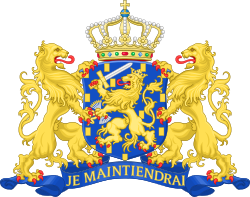 |
|---|
| Party | Votes | % | Seats | +/– |
|---|
| Roman Catholic State Party | 1,037,364 | 27.87 | 28 | –2 |
| Social Democratic Workers' Party | 798,632 | 21.46 | 22 | –2 |
| Anti-Revolutionary Party | 499,892 | 13.43 | 14 | +2 |
| Christian Historical Union | 339,809 | 9.13 | 10 | –1 |
| Liberal State Party | 258,732 | 6.95 | 7 | –1 |
| Free-thinking Democratic League | 188,952 | 5.08 | 6 | –1 |
| Communist Party of the Netherlands | 118,238 | 3.18 | 4 | +2 |
| Reformed Political Party | 93,274 | 2.51 | 3 | 0 |
| Revolutionary Socialist Party | 48,405 | 1.30 | 1 | +1 |
| National Farmers' Horticulturists' and Middle Class Party | 47,688 | 1.28 | 1 | 0 |
| Roman Catholic People's Party | 40,904 | 1.10 | 1 | +1 |
| Christian Democratic Union | 38,464 | 1.03 | 1 | +1 |
| Hervormd Gereformeerde Staatspartij | 33,930 | 0.91 | 1 | 0 |
| Alliance for National Reconstruction | 30,332 | 0.81 | 1 | New |
| Independent Socialist Party | 27,470 | 0.74 | 0 | New |
| Catholic Democratic League | 20,405 | 0.55 | 0 | New |
| General Dutch Fascist League | 17,157 | 0.46 | 0 | New |
| General Democratic Union | 14,567 | 0.39 | 0 | New |
| Nationaal Verbond Plicht, Orde, Recht | 11,162 | 0.30 | 0 | New |
| Christian Workers Party | 6,787 | 0.18 | 0 | 0 |
| Union of Nationalists [ nl ] | 6,449 | 0.17 | 0 | 0 |
| Limburg Federation [ nl ] | 6,358 | 0.17 | 0 | – |
| Roman Catholic Labour Party | 6,202 | 0.17 | 0 | New |
| Justice and Freedom [ nl ] | 4,267 | 0.11 | 0 | New |
| Market Traders | 3,184 | 0.09 | 0 | New |
| Wolswinkel List | 3,062 | 0.08 | 0 | New |
| Independent Businessmen | 2,422 | 0.07 | 0 | New |
| National Socialist Party | 2,127 | 0.06 | 0 | New |
| Dutch Fascist Union | 1,771 | 0.05 | 0 | New |
| Jacobs List | 1,629 | 0.04 | 0 | New |
| RK Bouwvakarbeiders | 1,330 | 0.04 | 0 | New |
| Eijking List | 1,180 | 0.03 | 0 | New |
| Handeldrijvende Middenstand | 1,123 | 0.03 | 0 | New |
| Dutch League of Taxpayers | 940 | 0.03 | 0 | New |
| General Welfare Party | 892 | 0.02 | 0 | 0 |
| Main and Manual Workers | 763 | 0.02 | 0 | 0 |
| New Socialist Party | 746 | 0.02 | 0 | New |
| Engels List | 725 | 0.02 | 0 | New |
| National Union of Labour Interest | 551 | 0.01 | 0 | New |
| De Wit List | 510 | 0.01 | 0 | New |
| For General Welfare | 517 | 0.01 | 0 | New |
| Bongers List | 473 | 0.01 | 0 | New |
| Zuiderzee Party | 338 | 0.01 | 0 | New |
| General Dutch Tenants' League | 294 | 0.01 | 0 | New |
| Orange Fascists [ nl ] | 261 | 0.01 | 0 | New |
| Universal Party | 237 | 0.01 | 0 | New |
| National Workmen's Party | 227 | 0.01 | 0 | New |
| Anti-Crisis Party | 197 | 0.01 | 0 | New |
| Triesscheijn List | 193 | 0.01 | 0 | New |
| Proletarian Group | 185 | 0.00 | 0 | New |
| Central Democratic Labour Party | 182 | 0.00 | 0 | New |
| Building and Reconciliation | 142 | 0.00 | 0 | New |
| General Workers' League | 97 | 0.00 | 0 | New |
| Groothuis List | 90 | 0.00 | 0 | New |
| Total | 3,721,828 | 100.00 | 100 | 0 |
|
| Valid votes | 3,721,828 | 95.44 | |
|---|
| Invalid/blank votes | 177,827 | 4.56 | |
|---|
| Total votes | 3,899,655 | 100.00 | |
|---|
| Registered voters/turnout | 4,126,490 | 94.50 | |
|---|
| Source: CBS, [3] Nohlen & Stöver |



